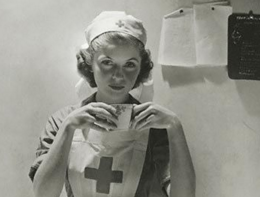A simple blood test to check for AMH levels is one of the most common and reliable ways to know, at least directionally, the health and wealth of your ovarian reserve. I’ve been biting my nails for over a week waiting for my results – all of the other blood work that I did on orientation day came back in less than a week. I even had a full physical in that time with my GP, Dr. Meehan (who is amazing!) and he tested for everything under the sun – those results came back in less than a week as well (and I’m happy to report that he said that I’m ‘one of the healthiest specimens’ he has ever seen).
But the AMH results were taking forever and I was convinced that that meant something very bad. I was having anxiety attacks every night. Occasionally, usually at night when I’m alone and just about to crawl into my heavenly bed, the thought of never having children of my own hits me like a ton of bricks, and it is the saddest, heaviest feeling in the world. No amount of wine or Xanax can help with that feeling.
And despite all indicators that I’m in perfect health, in typical fashion, I was expecting the worst of my AMH results. I was convinced that I had somehow killed all my eggs, that my AMH level would be 0 and my ovarian reserve empty. So I was thrilled when Christina, the lovely RN who is handling my ‘case’ left me a voicemail to tell me that my AMH level is 2.45 – she said that was very good.
In addition to being pessimistic, I’m also a bit competitive, so naturally, I googled AMH levels to figure out exactly what she meant by ‘very good.’ How did I compare to women my age?
I found this chart. It lists the mean and median AMH levels by age, and indicates that I’m well above average. I’m now patting myself on the back, even though I didn’t actually do anything to accomplish this – it’s just something happening inside my body that I can’t really control.
This experience has underscored how simple it is to know. To have the knowledge – whether it’s good or bad – is key to making decisions about the future. And it’s not that hard. It’s a blood test. Why wouldn’t every GYN suggest it to their patients at a certain age, simply so women know about their reproductive health, specifically, their ovarian reserve, earlier?
I’m not sure of the answer to that, but I’m working on finding out!
Image Sourced From: Free People





